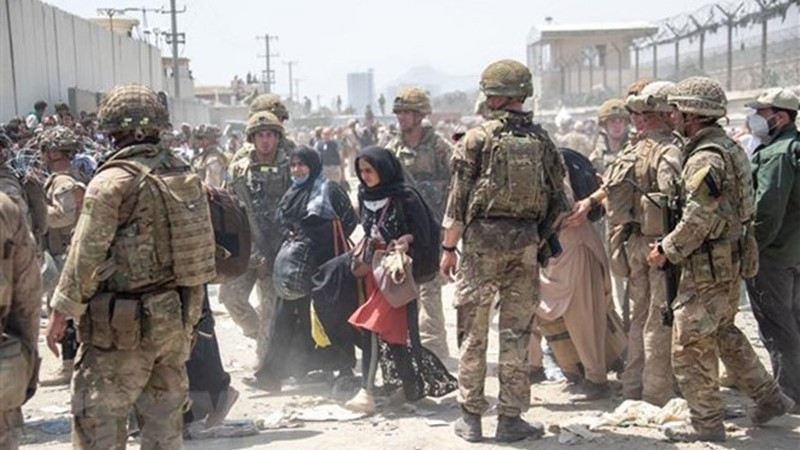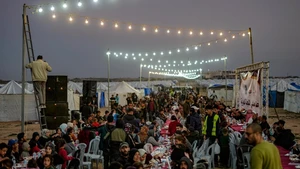In recent days, an atmosphere of uncertainty has enveloped many areas of Afghanistan, as a series of targeted attacks on civilian targets in the capital Kabul and many other provinces have been carried out. The so-called Islamic State (IS) group has claimed responsibility for the attack at the Khalifa Sahib Mosque in the west of the capital on April 29, which left 50 people dead. It was the deadliest violence over the past two weeks and the latest attack claimed by IS.
At least 100 people have died in terrorist attacks over the past two weeks in Afghanistan. Two explosions on April 19 outside a school in an area populated by Shiite Muslims in Kabul killed many students. Two days later, two explosions occurred in a row at a Shiite mosque in the city of Mazar-i-Sharif, northern Afghanistan, killing more than 30 people. A few days later, successive explosions occurred in the northern localities.
United Nations Secretary-General Antonio Guterres strongly condemned the attack at the Khalifa Sahib Mosque and stressed that attacks against civilians and civilian objects, including mosques, are strictly prohibited under international humanitarian law. The UN Security Council also issued a condemnation of the multiple recent terrorist attacks targeting minorities in Afghanistan. The members of the Security Council reaffirmed that terrorism in all its forms and manifestations constitutes one of the most serious threats to international peace and security.
The so-called Islamic State Khorasan (IS-K), an offshoot of IS in Afghanistan, has claimed responsibility for four of the recent mass-casualty attacks. No group has so far taken responsibility for the remaining attacks, but the incidents show similar characteristics to the ones carried out by IS. According to experts, the recent attacks in Afghanistan are an attempt by IS-K to discredit the ruling Taliban force among the Afghan people as well as the international community, in the context that the government established by the Taliban has not been internationally recognised.
IS-K is inherently opposed to the Taliban's stance on its ambition to build a government confined to Afghanistan's borders, rather than to establish an Islamic State throughout the region. The resurgence of IS-K is a big obstacle for the Taliban government because if they want to be recognised, the Taliban must ensure security for the country and not let terrorist groups use Afghanistan as a springboard to launch attacks.
Meanwhile, Afghanistan's economy fell into a serious crisis as many overseas assets were frozen, and Afghanistan did not receive adequate aid after the Taliban returned to power.
The World Bank (WB) warned that in the current conditions, the outlook for the Afghan economy is "very dire". Afghanistan's GDP per capita is projected to fall by 30% by the end of 2022 from the 2020 level. The humanitarian crisis is always near when up to 37% of Afghan families cannot afford to buy food, and 33% of households can barely meet their daily food needs.
A representative of the Taliban government recently confirmed that it had eliminated most of the presence of IS elements in Afghanistan and fulfilled its commitment to restore peace and stability in the country. However, the recent spate of deadly attacks still underscores the growing potential for instability in Afghanistan. If the seeds of terrorism are not eradicated, not only will humanitarian relief efforts for millions of Afghans be impeded, but regional and international security will again face increasing risks from the threat of radical terrorism.
















